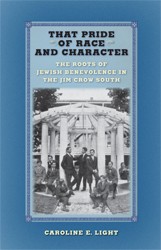This is a scholarly analysis of black-Jewish relations as seen through the lens of the history and sociology of the leadership organizations of both groups in the 20th century. Greenberg concludes that African- Americans and Jewish Americans have often worked as political allies despite the fact that their priorities and approaches may radically differ and that within each community, organizations dramatically differ from each other and at times from their own constituencies. However, there are enduring commonalities. Both groups are America’s “quintessential liberals”; and both communities have faced severe bigotry and discrimination. At times, class, ethnic, religious differences, and competition have served to disrupt their collaborative efforts. Jews have always “benefited” from having white skin and this “whiteness” has informed their politics more than they recognize. One well-known example is the conflict that occurred in the 1960s. American Jews sought and benefited from policies that enforced “blindness to race and religion,” while many African- American organizations challenged the meritocracy model and vociferously sought to implement affirmative action policies for minority candidates.
The author suggests that what is needed today is a return to the struggle for justice and a return to “liberal politics” based on “spacious self-interest,” where there is mutual respect, democracy, the protection of individual rights, and the responsibility of the state to protect those rights and ensure equal opportunity.
The book has its strengths and weakness. The author provides extremely detailed histories of Jewish and African American civil rights efforts, together and as separate communities. For the average reader this level of detail might prove tedious, but for the scholar and political tactician, the volume is a goldmine of information. Politically conservative readers might question the author’s basic assumption, which she clearly states, that a return to liberalism will benefit both groups and society as a whole. That said, this book is likely to become one of the classic histories of black-Jewish relations in the United States.
Cheryl Lynn Greenberg is professor of history at Trinity College in Hartford, Connecticut. She is the author of “Or Does it Explode?” Black Harlem in the Great Depression and the editor of A Circle of Trust: Remembering SNCC. Abbreviations, index, notes.




